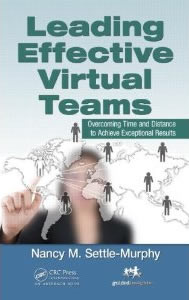A colleague recently landed a job for Export Trading Co. LTD, an agro processing company in Dar es Salaam, Tanzania, with offices throughout Sub Saharan Africa. I wondered: Is it any easier to become assimilated into a new culture today than it was for me when I took a temporary assignment in Hong Kong two decades ago?
So I contacted my colleague, Clint Cuny, CEO of Export Trading Group USA, to find out how he had managed to qualify himself “culturally” for his new job. We had a great conversation, sharing experiences, ideas and tips, many of which we share with readers in this Communiqué.
- Take the first best guess. It’s true that stereotypes can unfairly bias us toward a particular group of people. Our predispositions are a collection of our personal and professional life’s experience. But it’s also true that making some generalizations about a new culture can help us avoid some costly missteps early on. For example, if we know that in a particular country, employees typically defer to their leaders as experts, we may not expect a brainstorming session to yield many responses if the leader is present. Or if we learn that some cultures are reluctant to make decisions without first cultivating a personal relationship, we can calibrate our conversations accordingly. Without some well-informed generalizations about a culture, we typically revert to approaches that are comfortable for us, a tactic that’s sure to backfire.
- Understand how underlying values drive behavior. Think of culture as an iceberg where observable behavior is the 10% you can see while 90% is hidden. It’s one thing to observe a behavior — say, that workers are generally respectful about taking direction and don’t make it a habit to check in until their work is due. Unless you understand the cultural factors at play, you may unintentionally offend your colleagues if you request periodic progress reports because you can’t stand to be left in the dark. Discovering cultural values takes time. Try reading books or watching films to augment what you learn from your colleagues, who usually do not take an anthropologist’s view when explaining their own behaviors.
- Listen and observe before acting. Pay careful attention to interactions among people and groups and seek understanding of what is really happening. Who’s making eye contact with whom? Is there a usual order in which people tend to speak? How much direction do people seem to need or want? Are meetings considered open forums in which people can ask questions and debate, or are they led by senior leaders with little room for discussion? Take copious notes, including questions you have as you observed interactions unfolding. Find a time and place in which you can sit down with someone you know and trust to state your observations and ask open questions about what’s intriguing or puzzling to you. Try scheduling regular “cultural coaching” sessions with one or more colleagues, especially early on.
- Pace yourself. Americans, especially those of us from the Northeast, tend to operate at a pace that others find unnecessarily frenetic. People who work at a more deliberate pace can drive us crazy. Discover how the other culture regards time from a number of aspects, such as punctuality, levels of responsiveness, decision-making processes and planning horizons. Determine how you’ll have to adjust your own style or create strategies for adjusting to theirs. (Examples: If you have a low threshold for being kept waiting, try bringing something to work on if you suspect your colleague may be tardy. If you tend toward snap decisions, postpone announcing decisions, lest others think your decision may not be well thought out.)
- Adjust to different work habits. In some environments, people work heads-down for 12-hour days, up to six days a week. In others, people sachet in a tad too late for your taste, take a long, leisurely lunch, and then leave an hour or two later than you may be used to. We have seen some managers try to impose their own “work ethic” on people of other cultures. To avoid mutual frustration and distrust, be prepared to adjust your expectations about the hours you can realistically ask others to put in, based on local cultures and labor laws. If you’re used to persuading team members to work weekends or during vacation time to meet a critical deadline, don’t assume that will work in this case. Plan projects to safeguard personal time.
- Practice patience. Many Americans assume, implicitly or explicitly, that our penchant for speed is necessarily valued by other cultures. We tend to move “full speed ahead” in seeking input and consensus from all, gaining rapid agreement, and asking for direct feedback. We also move to quickly knock down any barriers that get in the way of speedy progress. In reality, however, many cultures take a more deliberate approach and feel uncomfortable being rushed to premature conclusions. Take your cues from your colleagues, and err on the side of moving more slowly than you may feel necessary to gain trust and win allies.
- Relationships matter. For some cultures, trusting relationships can be a prerequisite for doing business and matter more than achieving a particular business outcome. Many Americans value efficiency and speed in achieving “results” so much that they often overlook the importance of personal relationships to others. (After all, it takes time to grow a relationship, which is simply not very efficient!) Rushing to conclude an agreement or make a speedy decision inevitably causes the opposite to happen, especially in cultures where building a trusting relationship with the other person is a necessary first step.
Even if you take the time to learn everything you can about another culture before you immerse yourself, you’ll need large reservoirs of patience and understanding to eventually succeed. (And no, success will not come overnight!) Add a day or two to the time you’d normally expect a report. Don’t complain if people don’t join con calls (in some countries, such as in Africa, conference calls can be inordinately expensive and facilities don’t exist in many locations.) Know that not everyone will keep to the schedule they agreed to. There is a saying amongst Americans doing business in Africa: “TIA,” meaning “This is Africa.” Change that letter “A” to whatever culture or country in which you are working and remind yourself that you need to work hard to adapt to their culture, and not the other way around.
In the end, the overwhelming majority of people are same regardless of culture. We are good, want to do the right thing and want to be respected. Our interactions should reflect these principles. So watch, observe, don’t anticipate, and leave your predispositions at the proverbial door.
Links
See our white paper: Tips for communicating effectively to and with international audiences. Check out our related Communiqué ezines: Coalescing a New Team: Creating Ties That Bind, and Hello/Goodbye: Maintaining Momentum When Team Members Come and Go.
Learn how your organization might benefit from our customized cross-cultural communications workshops.




